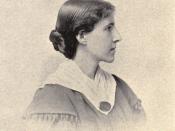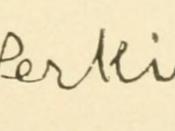There are many different ways to define the words Sex and Gender. Some would argue that the two words are synonyms, that one is just a more or less politically correct configuration of the other. Others would argue that they describe different aspects of male and female characteristics. A person's Sex would designate a place in the dichotomy between the biological makeup of males and females, and their gender would assign a role based on the norms of masculinity and femininity. For distinctive purposes, these will be dubbed the sex IS gender argument, and the second the sex AND gender argument, respectively. Some have argued, based on the sex AND gender perspective, that a persons gender corresponds with their sex, because it seems logical to imply that a male would be "masculine" and a female would be "feminine". The problem with this argument is that not only does it exclude the exception to the rule, hermaphrodites, but it also imposes the masculine/feminine dichotomy that is based on the norms in a given society.
How could a human that is considered a member of both sexes have two genders? Or no gender? Is it not ignorant to impose the set of rules, regulations, and expectations that come along with "masculinity/femininity" on someone based on their biological makeup? This is what weakens the sex AND gender argument. Its based on the illusory concept, derived from historical gender role norms, that men and women differ on a level beyond the biological.
The sex IS gender argument states that the word gender was created with the sole purpose of disregarding the connotations attached with the word sex, one of them being the nature/nurture idea, that the sole purpose of a woman's sexuality, or sexuality in general, is for reproduction. The sex IS gender perspective...


